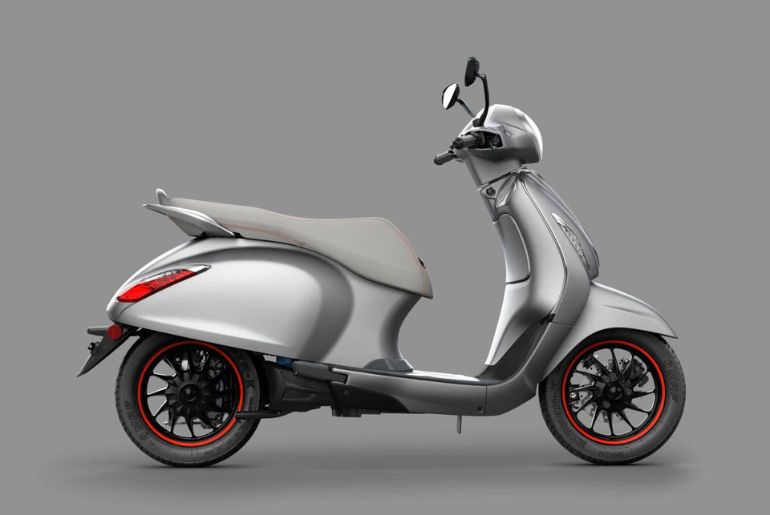In less than a year, the Bajaj Chetak has gone from being among the slower-selling electric scooters in India to the third-best-selling model. This increase can be attributed in part to its wider national distribution as well as the release of new, more reasonably priced varieties. According to newly discovered, the Chetak lineup will employ fresh battery cells from an alternative supplier, increasing range.
A scooter called the Chetak 3201 Special Edition was introduced by Bajaj earlier this month. It has a 3.2 kWh battery, just like the Chetak Premium, but it is supposed to have a greater range of 136 km, instead of the Premium’s 126 km. Although this originally baffled us, further investigation showed that the battery pack’s cells are being purchased from a different source.
The range has improved despite the same battery capacity, which can be explained by the new cells’ apparent greater efficiency and energy density compared to those in the outgoing model.
With the transition to new cells, Bajaj will also be updating the nomenclature of its variants to a numerical one. For example, the base model, the Chetak 2901, is named for its 2.9 kWh battery pack (denoted by the first two digits) and is the first variant in the current line-up to use this configuration (denoted by the last two digits). Similarly, we anticipate that the Premium and Urbane variants will adopt a similar naming system, with 3201 and 3202 being the likely possibilities, respectively.
Currently, the Chetak Premium costs Rs 147,000, while the 3201 special edition is priced lower than that, at Rs 1.40 lakh. It remains to be seen if the shift to new cells will also result in a price reduction for the variants that adopt new cells for their updated battery packs. If this does happen, it could boost Chetak’s success even further in the next few months, and it might not be long before it takes over second place in the EV scooter market from the TVS iQube.
In July, Bajaj Auto retailed 17,642 Chetaks, which makes for a 375% YoY increase on a low year-ago base (July 2023: 4,128 units). In the January-July 2024 period, Bajaj Auto sold a total of 84,225 Chetaks, 57,309 units more than the 26,916 units in the year-ago period and registering handsome growth of 213% YoY. This stellar performance gives Pune-based auto major a market share of 16.49%, a big jump over its 5.51% share in April-July 2023. This is thanks to a ramped-up production and a growing dealer network, which is to be expanded from its existing presence in 164 cities and 200 touchpoints to around 600 showrooms in the next three to four months.

